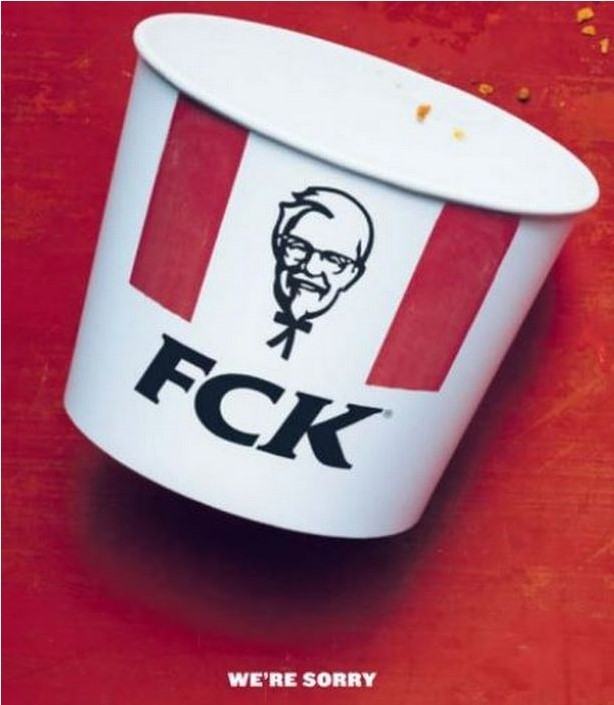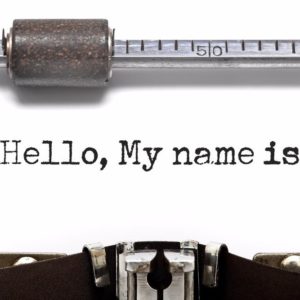

Made A Mistake? Here’s One Thing You Should Definitely Do
As anyone who used to work with me in corporate life will know, I’m a stickler for good spelling and grammar (I was notorious for proof-reading with my red pen poised). That’s not to say I don’t make mistakes – I’ve had a number of blog readers flag up the odd error over the years, for which I’m grateful – but I do try hard to keep the tally a lot lower than average.
So when I do spot an error, I cringe with embarrassment.
It’s not so bad when it’s in an email to an individual, but when the mistake is seen by a larger audience, the cringe/embarrassment factor goes up…big time! Just as it did the other day when, mid-way through a presentation, I glanced at a slide on the screen and saw the heading said ‘VAUES’ instead of ‘VALUES’.
The fact I’m admitting this in a blog post with hundreds of readers goes some way to illustrate the one thing you should definitely do in this situation:
Call out your mistake.
Because we’re all human and unless you’re building your personal brand on a platform of perfectionism (which is a decidedly wobbly platform) showing you’re fallible increases the chance of people buying into you. I’ve even written about that before.
There are a couple of ways to do that:
Tip 1: Use humour
This one works well when humour is part of your personal brand, either in a gentle way or full-on, which it is in mine. (However, if you’re usually a really serious person, busting out a one-liner will only make people question your authenticity, so avoid it.)
In the case of my misspelt slide title, I said, “What the hell’s a ‘vaue’? It sounds Scandinavian, like that word ‘hygge’ everyone was on about last year.” (OK, it’s not side-splittingly funny, but it raised enough of a smile to redeem the situation.) It flags that you’ve seen what everyone else has seen and you’re bringing them all in on the fact.
Tip 2: Recognise, apologise and show learning
Humour is fine in some circumstances, but it isn’t always the answer. If the mistake is a big one, taking the funny route could make you appear flippant. In that situation:
- Hold your hands up
- Offer a genuine apology if necessary (which you only do if your mistake has disadvantaged someone or caused them grief)
- Outline what you’ve learnt from the mistake and set out how you’ll apply that learning in future.
For a good example of a company using humour to match its brand and an apology for a mistake, check out the recent KFC advert, following the shortage of chicken in its stores.

With either approach, it works best if you flag the mistake as soon as you can. But even if the mistake is an old one, if it’s creating an obstacle to someone buying-into your personal brand, there’s still value in calling it out.
Here’s what I’m talking about
I’d delivered a keynote session at a conference, when a woman approached me afterwards with a question. She said she wanted to get ahead in her career and knew that getting buy-in from a certain executive would go a long way to helping her achieve that.
The problem was, when she’d first begun working with this exec, she’d make a big mistake involving sending out an agenda before it had been signed off. Ever since, she’d avoided the exec as much as possible, embarrassed by the situation and nervous around them because of her assumption that they thought she was bad at her job.
But nothing was going to change unless she called out her mistake.
So I suggested she ask for a quick meeting with the exec, tell them she was serious about moving her career forwards and conscious she hadn’t made a good first impression. Then she should say what she’d learnt from the mistake and how she’d applied that learning since. And having done that, I recommended she move the conversation on to something positive by asking the exec for their advice on what she could do to develop further.
That last part is the important bit.
A mistake is a negative thing, so dwelling on it will only serve to create a negative vibe around your personal brand. Instead, deal with the mistake quickly and genuinely, then take the conversation to a more positive place.
How do you deal with mistakes? Have you managed to salvage your reputation by how you handled it? Or did you fall foul of avoiding the subject then have it bite you on the backside later? What advice would you offer? You know I’d love a comment below if you have one!







Leave a Reply